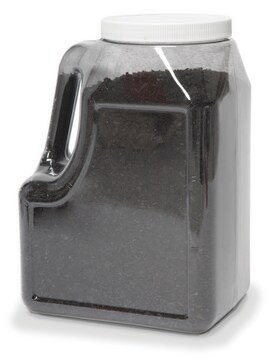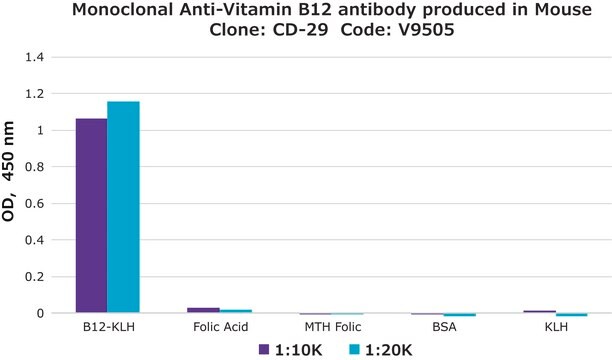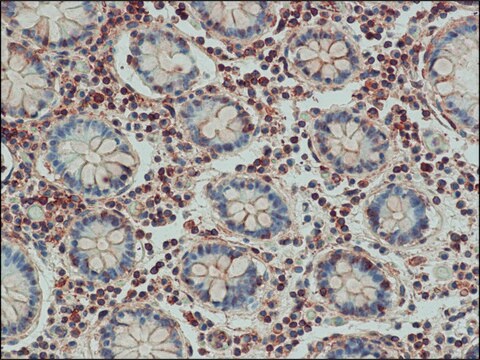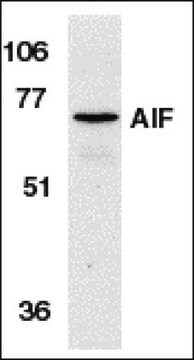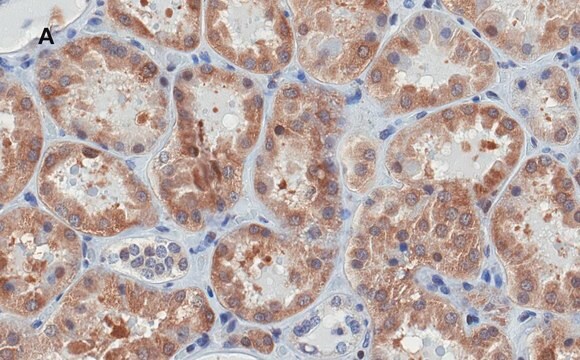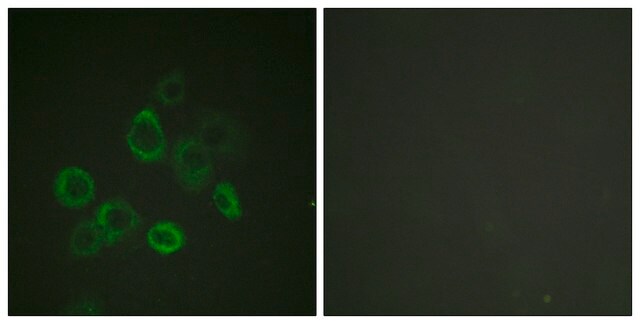A7549
Anti-Apoptosis-Inducing Factor antibody produced in rabbit
IgG fraction of antiserum, buffered aqueous solution
Synonym(e):
Anti-AIF
About This Item
Empfohlene Produkte
Biologische Quelle
rabbit
Konjugat
unconjugated
Antikörperform
IgG fraction of antiserum
Antikörper-Produkttyp
primary antibodies
Klon
polyclonal
Form
buffered aqueous solution
Mol-Gew.
antigen 57 kDa
Speziesreaktivität
mouse, human
Verpackung
antibody small pack of 25 μL
Methode(n)
microarray: suitable
western blot: 1:1,000 using human epitheloid carcinoma HeLa cell extract and mouse brain extract
UniProt-Hinterlegungsnummer
Versandbedingung
dry ice
Lagertemp.
−20°C
Posttranslationale Modifikation Target
unmodified
Angaben zum Gen
human ... AIFM1(9131)
mouse ... Aifm1(26926)
Allgemeine Beschreibung
Rabbit Anti-AIF antibody recognizes human and mouse AIF (57kDa). Staining of AIF in immunoblotting is specifically inhibited with the AIF immunizing peptide (human, amino acids 593-613).
Immunogen
Anwendung
Biochem./physiol. Wirkung
Physikalische Form
Haftungsausschluss
Sie haben nicht das passende Produkt gefunden?
Probieren Sie unser Produkt-Auswahlhilfe. aus.
Lagerklassenschlüssel
12 - Non Combustible Liquids
WGK
WGK 2
Flammpunkt (°F)
Not applicable
Flammpunkt (°C)
Not applicable
Hier finden Sie alle aktuellen Versionen:
Besitzen Sie dieses Produkt bereits?
In der Dokumentenbibliothek finden Sie die Dokumentation zu den Produkten, die Sie kürzlich erworben haben.
Unser Team von Wissenschaftlern verfügt über Erfahrung in allen Forschungsbereichen einschließlich Life Science, Materialwissenschaften, chemischer Synthese, Chromatographie, Analytik und vielen mehr..
Setzen Sie sich mit dem technischen Dienst in Verbindung.